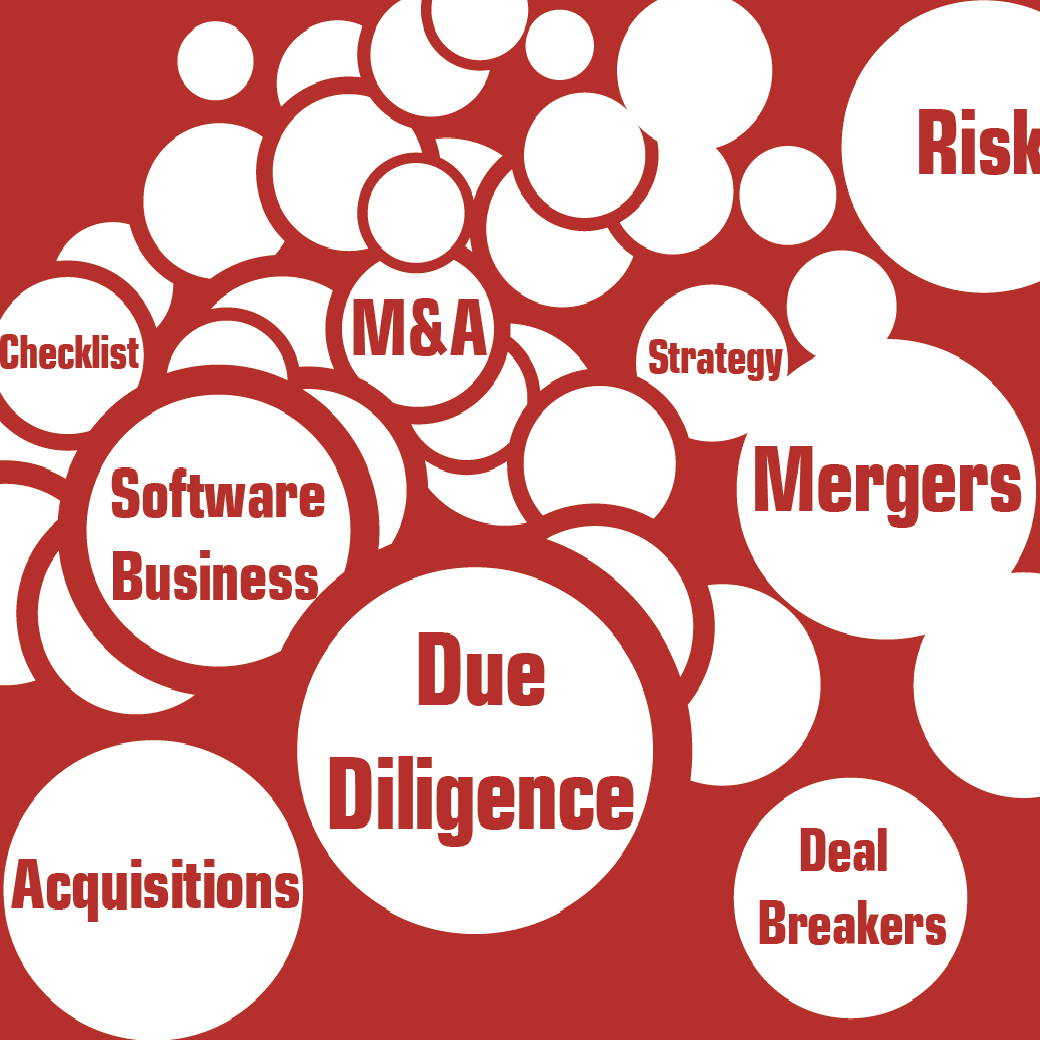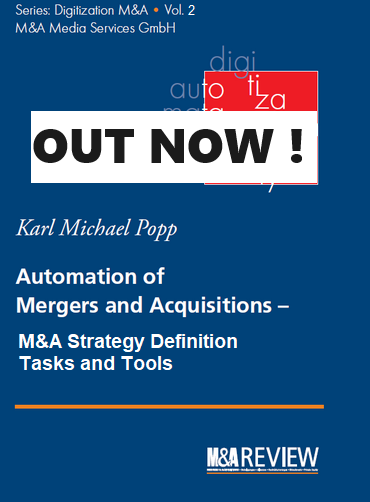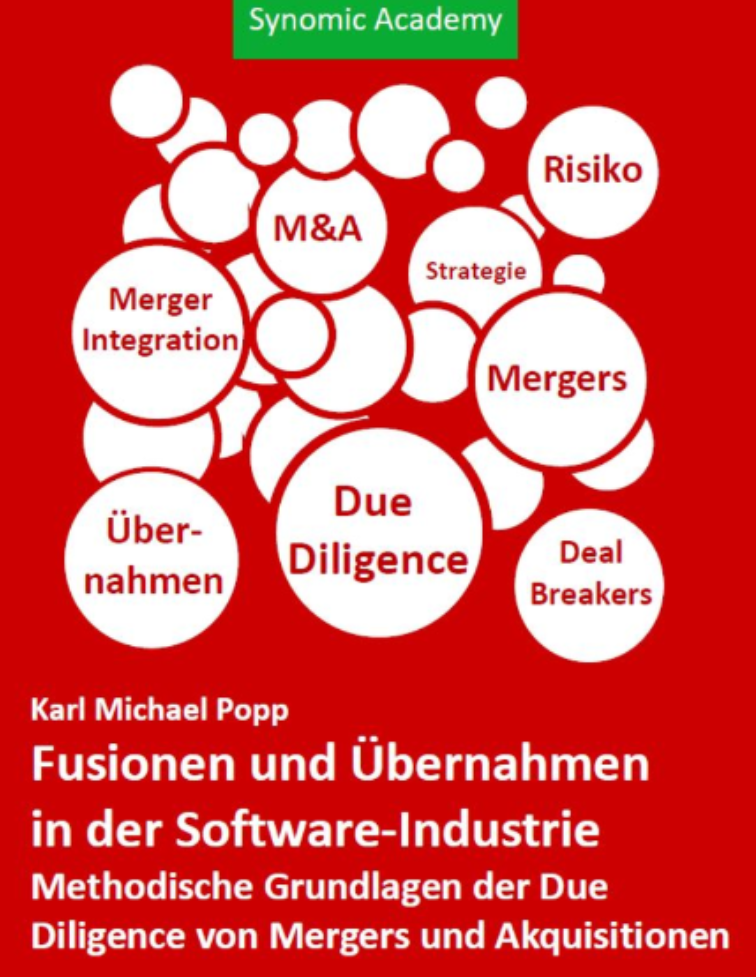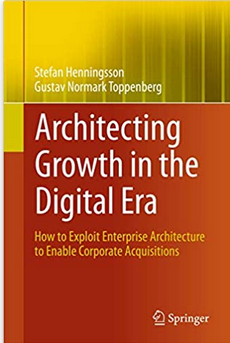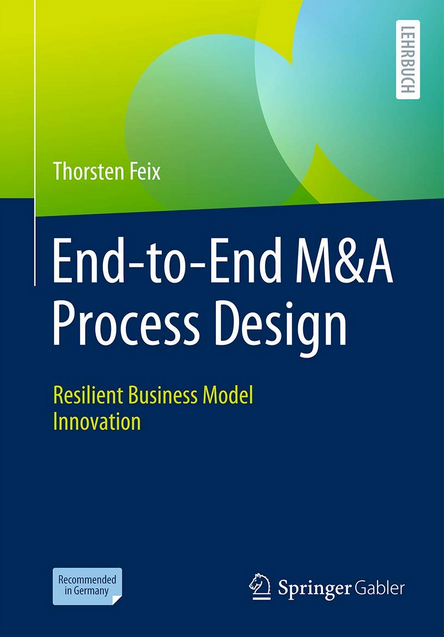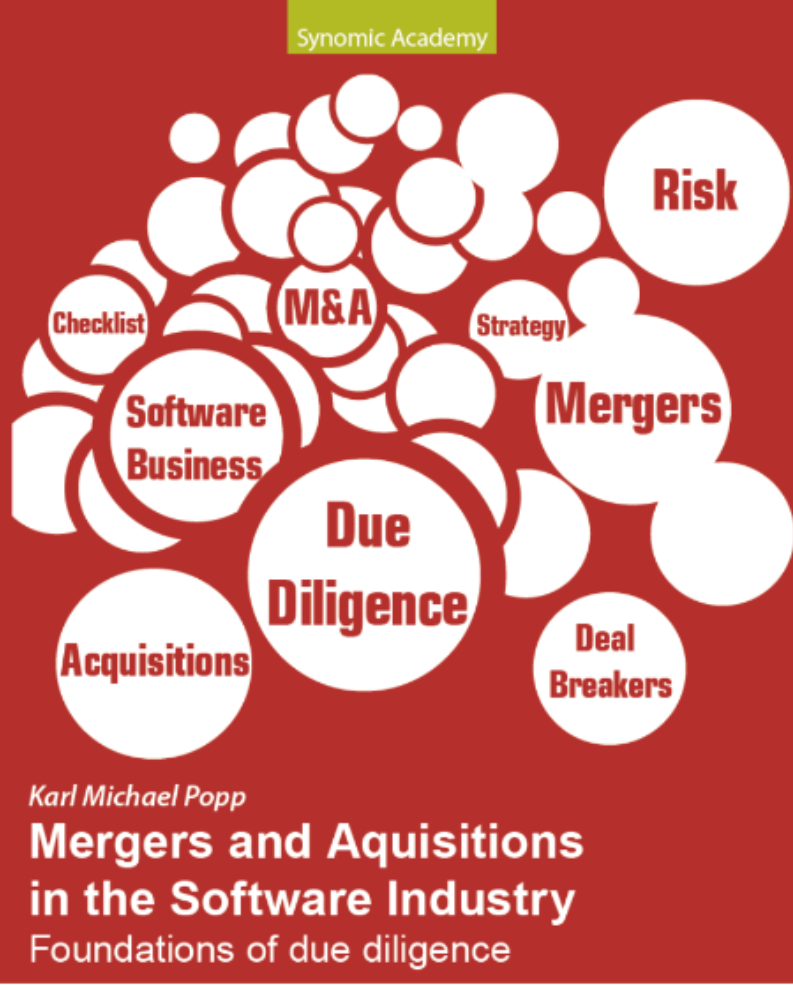Machine learning is everywhere - except in M&A processes. Let´s change that. Let us imagine the impact of machine learning in different steps of a typical M&A process. Let us start by sharing some of my ideas to trigger your imagination. I am convinced that the technologies needed to achieve this vision are in place today, they are just not being used in this context.
Early phases of the M&A process, shortlisting phases
Let´s say you have five companies in your shortlist. Machine learning can help finding and selecting potential targets e.g. by predicting which of the companies considered will be the unicorn, i.e. the most successful company in the list. Approaches for doing that exist, e.g. https://papers.ssrn.com/sol3/papers.cfm?abstract_id=3159123
Preparing the Letter of Intent
Based on past projects, machine learning can help to predict deal breakers, find missing or potentially wrong data in the financial valuation of the target and propose deal structure and clauses for the letter of intent based on the existing, available data about the target and the acquirer.
Due diligence
A vital part of the job to be done in due diligence is that you are looking for missing data, for deal breakers and risks in documents in the data room BUT you only have limited time and a huge data lake in the data room. So let us see how automation and machine learning could help us here.
Day one of due diligence: the data room is available. Day 2 of due diligence: Information about missing data, deal breakers and risks is already available.
How is that possible? Using automated document/contract analysis based on machine learning as well as data about deal breakers and historic projects, a machine learning application can provide this information. There is a huge value in this: you get more time in due diligence to work on missing data, for deal breakers and risks, so quality of due diligence results will massively increase.
No more reporting: During due diligence, digital assistants will automatically keep the lists of tasks, risks, issues and results, will create automatic reporting from that and propose next steps.
Merger integration
Results from the due diligence are automatically distributed digitally to all integration team members. Machine learning based digital assistants propose the integration plan, the integration timeline and which next steps should be taken. They analyze due diligence data and propose the set of data that should be doublechecked and validated. They validate that data by extracting information from the target´s ERP systems automatically and present deviations in digital dashboards and propose next steps.
Learning assistants analyze the learning needed by the involved integration managers based on their CV and proposes digital learning lessons based on PMI2GO.
No more reporting: During due diligence, digital assistants will automatically keep the lists of tasks, risks, issues and results, will create automatic reporting from that and propose next steps.
Let us imagine the impossible - and make it work
The opportunities are massive but are not yet leveraged. I think the M&A community has to provide guidance to vendors to achieve a vision i call the Digital M&A Manifesto. Stay tuned for more details. Like this article to get more inspiration!
